Your first serious relationship comes with a lot of new experiences—excitement, heartache, and lessons you never see coming. It’s a time of learning what love really feels like and what it sometimes costs.
One woman found herself in exactly that position. When her boyfriend suggested opening their relationship to fix what he called a fading spark, she agreed, afraid of losing what they had. But in the process, she met someone else, someone who treated her with care and made her feel genuinely wanted. That’s when her boyfriend suddenly insisted they go back to being monogamous.
Now, she’s not sure she wants to play by his rules anymore.
RELATED:The woman agreed to a polyamorous relationship, afraid of losing her first boyfriend

But the moment she met someone who treated her better, he suddenly wanted her all to himself




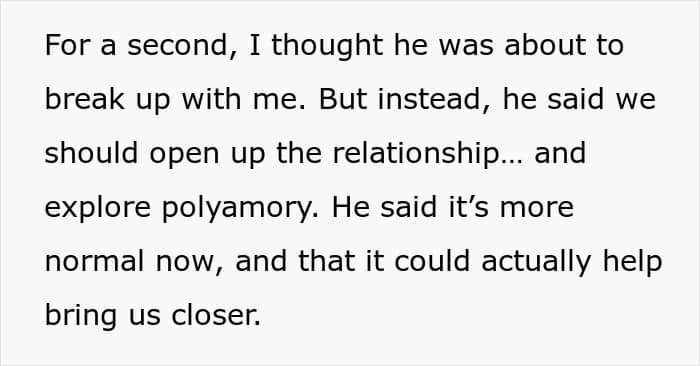


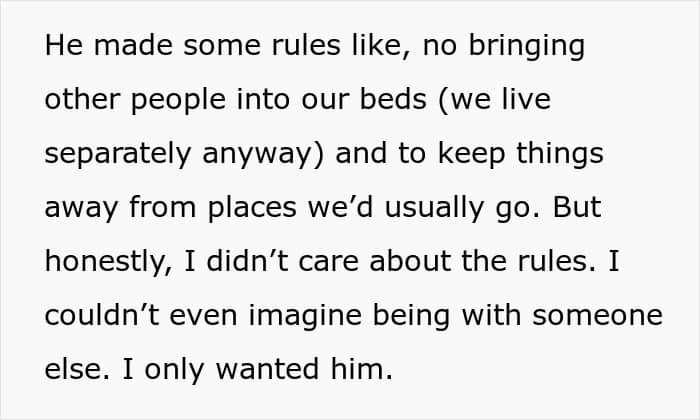
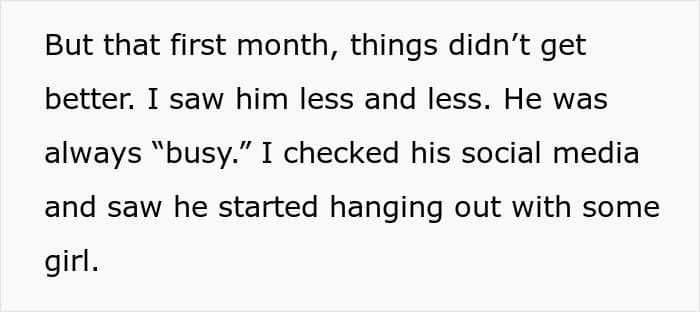





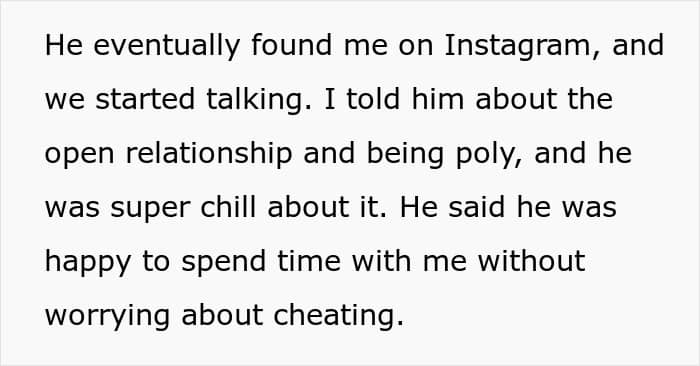
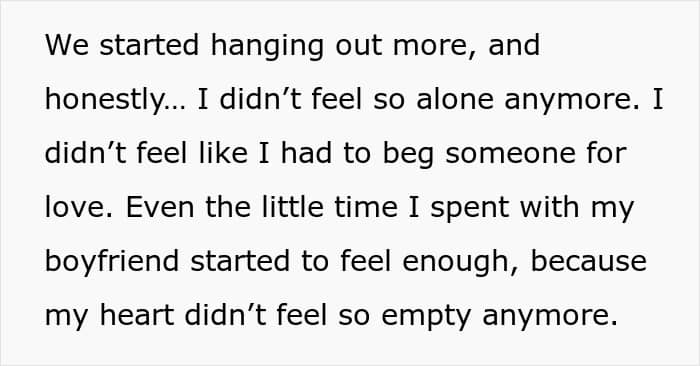




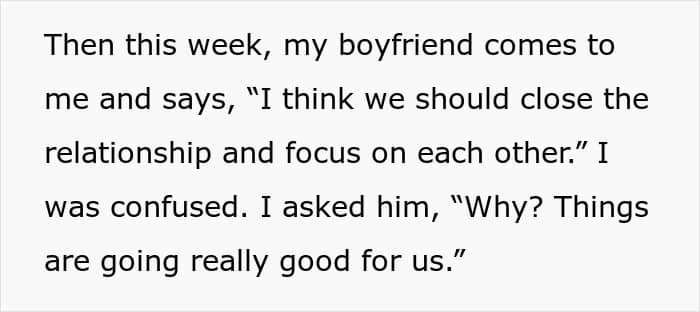



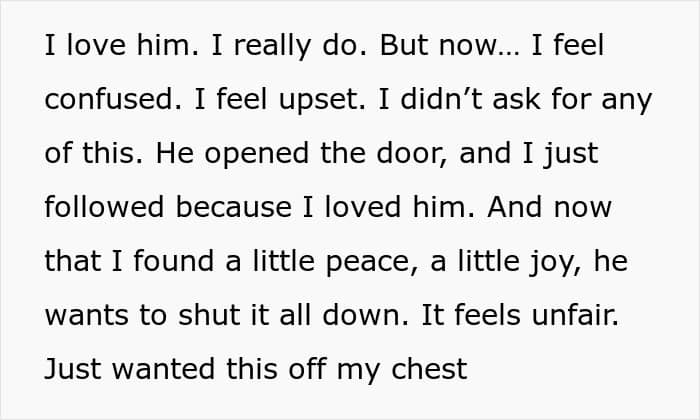
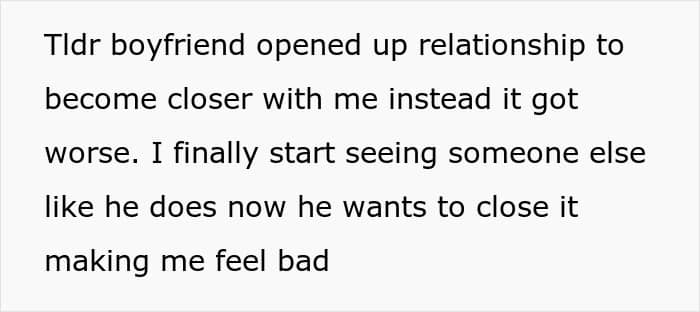
Almost a third of people say they struggle to tell their partner “no”
In a world that celebrates monogamy and idealizes the idea of “finding the one,” polyamory remains a complicated and often misunderstood topic. While it’s still up for debate how successful open relationships are long-term, one thing is clear—it’s hard to build something healthy when one person feels pressured into it.
It does, however, open the door to a much bigger conversation: boundaries. How far are we willing to stretch ourselves for someone we love? And when does compromise turn into self-abandonment?
In recent years, the word “boundaries” has made its way from therapy rooms into everyday conversations. But just because we talk about them more doesn’t mean we’ve gotten better at using them.
According to research by the Thriving Center of Psychology, 58% of people in the US admit they have a hard time saying no to others. It’s even more common among women—65% say it’s difficult for them, compared to 49% of men. Friends and parents are the hardest to turn down, but romantic partners aren’t far behind, with 28% finding it tough to assert themselves with someone they’re dating.
It makes sense. The closer someone is to us, the more we care about protecting that connection. We worry that saying no might hurt them, disappoint them, or even threaten the relationship. And when we’re in a vulnerable position, like the woman in this story, it’s even harder to push back.
But boundaries are a part of every relationship. They come up at all stages, whether it’s about how fast things are moving, what counts as cheating, or how to manage money together. That’s why it’s so important to talk about them and to keep checking in as things evolve.
PsychCentral offers a few tips for setting boundaries that actually work. First, don’t wait. The earlier you bring something up, the easier it is to avoid confusion later. And even if the timing isn’t perfect, bringing it up late is still better than never addressing it at all.
Expect hard conversations, and have them anyway. “Communication is key to relationships,” Dr. Jacqui Gabb, professor of sociology and intimacy at The Open University, told PsychCentral. “You do need to have [conversations], even if they’re really difficult things to talk about, like sex.”
It also helps to use “I” statements rather than blaming language. As Gabb puts it, “I think all communication should start with ‘I feel.’” If you begin with accusations like “you never” or “you always,” people tend to shut down and stop listening.
Finally, don’t feel guilty asking for space. Wanting time for yourself doesn’t mean you’re pushing someone away; it just means you’re making room to recharge. Just make sure you’re kind and thoughtful in how you say it.

In the replies, the woman shared that opening up gave her the clarity she needed
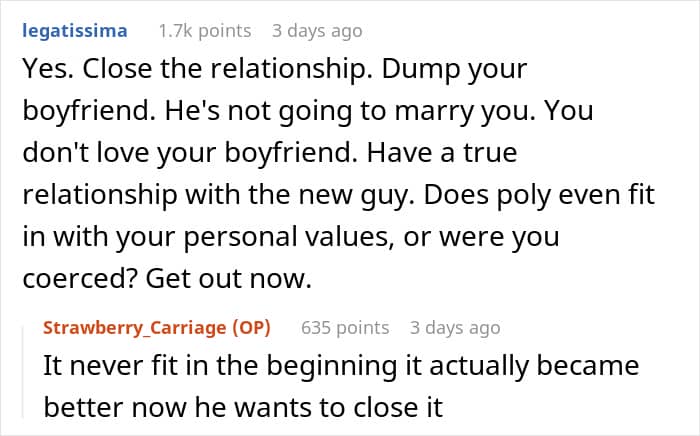
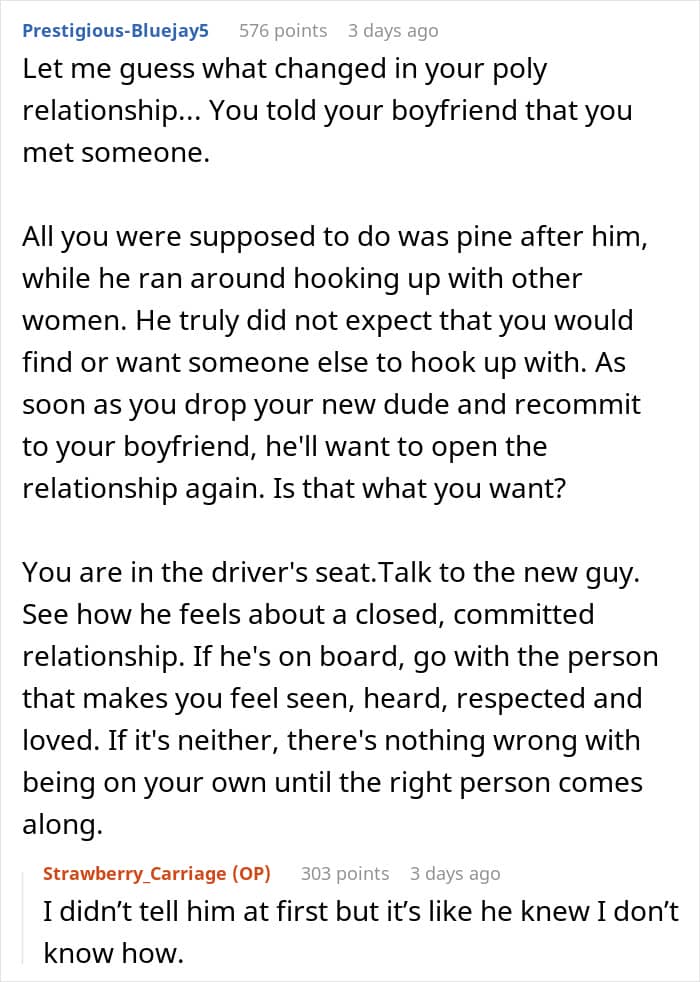


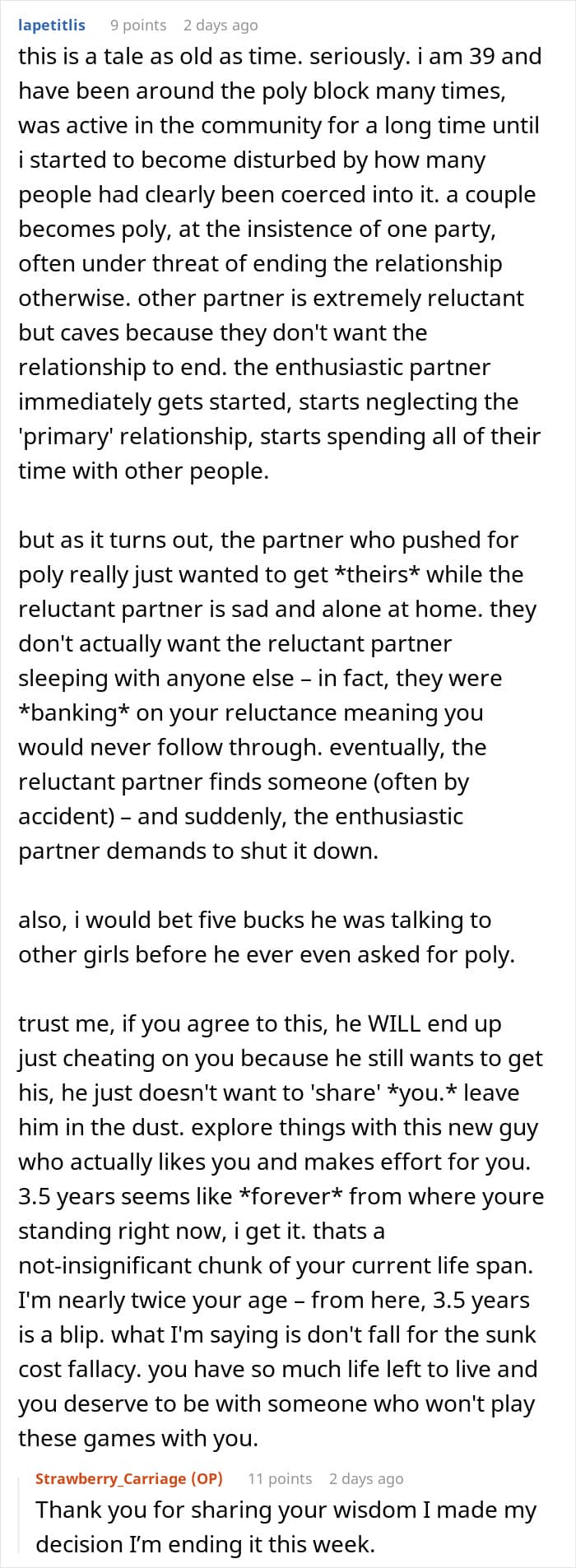




Readers agreed it was time to walk away










